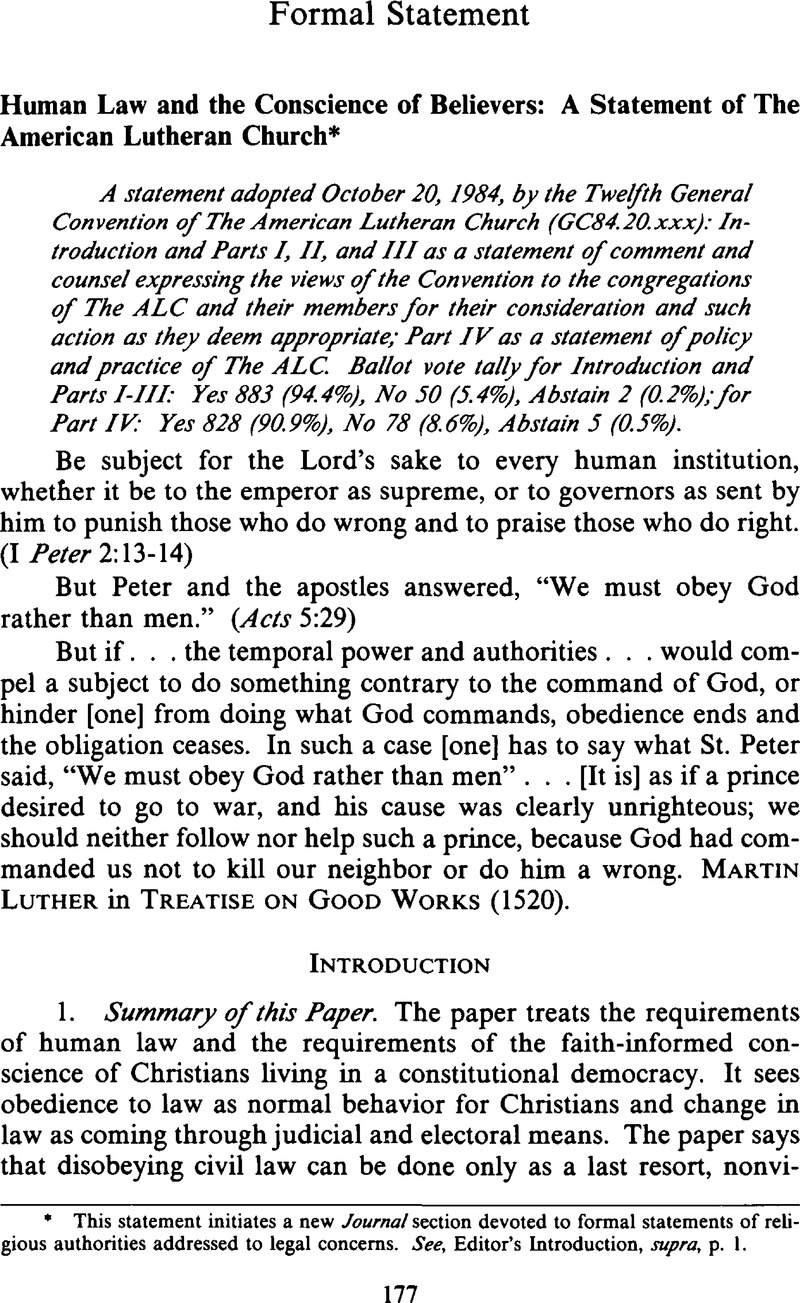No CrossRef data available.
Published online by Cambridge University Press: 03 February 2016

This statement initiates a new Journal section devoted to formal statements of religious authorities addressed to legal concerns. See, Editor's Introduction, supra, p. 1.
1. The World Peace Tax Fund Act would amend the Internal Revenue Code to provide that a taxpayer conscientiously opposed to participation in war could have that portion of her/his taxes equal to the military share of the federal budget designated for a special trust fund, which would finance specific non-military, peace-related activities (such as national peace academy of retraining of workers displaced by conversion of industry from weapons production). In 1984 the chief Senate sponsor is Mark Hatfield (R-OR) and the bill has some 50 House co-sponsors.
2. Traditional criteria say a war, to be justifiable, may be entered only (1) for a just cause (e.g., defense); (2) as a last resort; (3) upon declaration by lawful authority; (4) if there is reasonable prospect of achieving the just goals. Further, war to be justifiable may be prosecuted only (5) by means proportionate to the ends sought; (6) in ways that insure the immunity of non-combatants; (7) with promise of mercy to a vanquished enemy.
3. To “remain in ministry with” implies (1) no breaking of the fellowship of the faith community because of disagreement over particular acts of civil disobedience; (2) support through prayer, counsel, pastoral care, and acts of love on behalf of those who may be in violation of law; (3) no commitment on the part of the American Lutheran Church to provide financial or legal support for persons who engage in acts of civil disobedience.